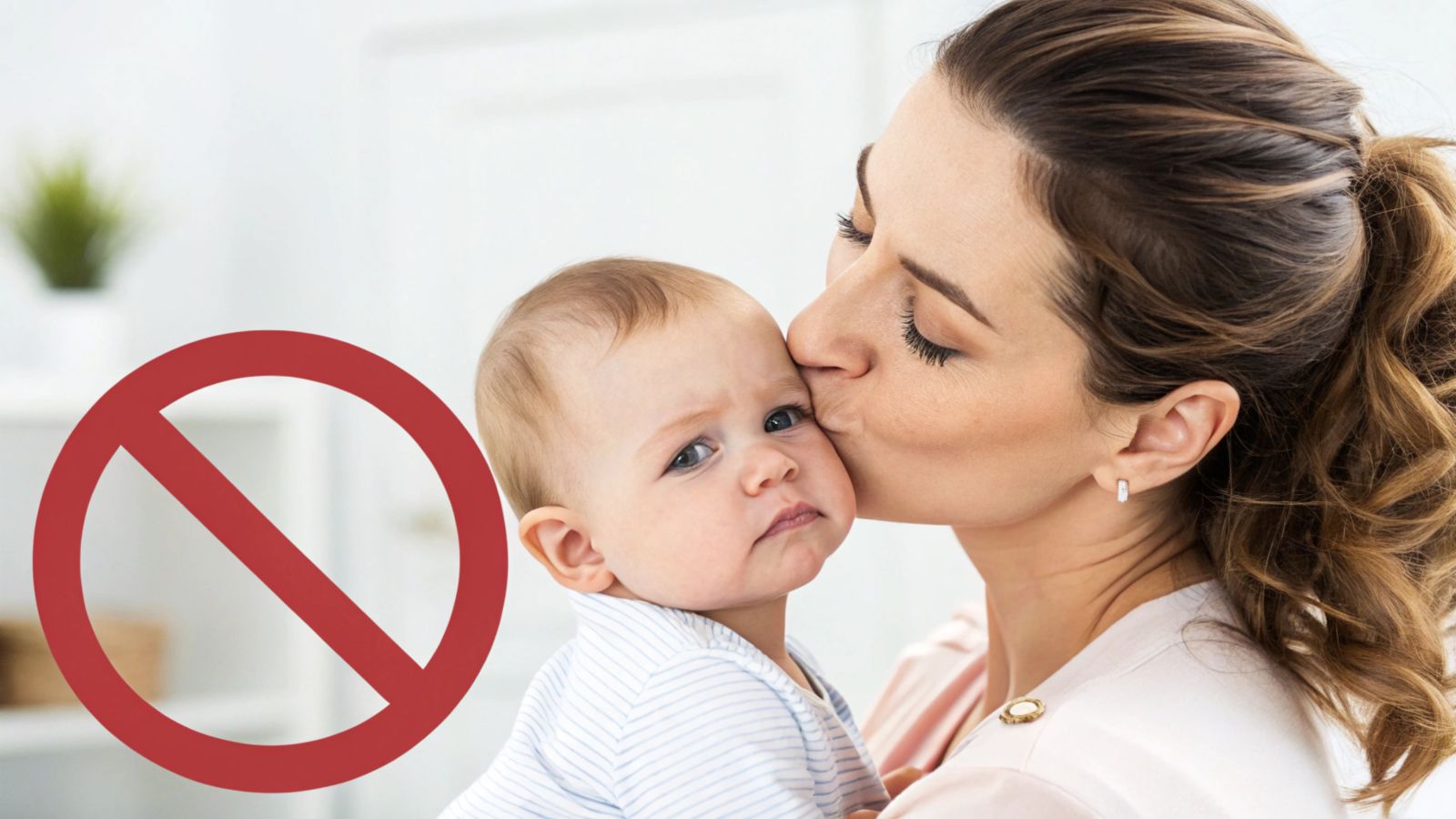Here's why you should never kiss a newborn 🚫
Published by Adrien,
Source: The Conversation under Creative Commons license
Other Languages: FR, DE, ES, PT
Source: The Conversation under Creative Commons license
Other Languages: FR, DE, ES, PT
Follow us on Google News (click on ☆)
Have you ever heard of the cognitive bias known as the "curse of knowledge" (“curse of knowledge” in English, also sometimes called the "curse of expertise")? It describes a situation in which you incorrectly assume that everyone knows as much as you do about a given topic.

As a clinical microbiologist, I thought everyone knew that kissing a newborn was a very bad idea. However, recently, Karan Raj, a surgeon with the National Health Service (NHS), released a video on the social media platform TikTok to warn his followers about the dangers of kissing a small baby.
Judging by the thousands of reactions to his post, it seems this was new information for many people... Findings from a survey conducted late last year by a UK charity, The Lullaby Trust, support this: they revealed that 54% of young parents (or parents-to-be) "would allow their friends and family to kiss their newborn without being aware of the serious infection risks this poses to the baby's health."
Perhaps, then, it's worth reminding everyone why kissing a newborn can be so dangerous.
An underdeveloped immune system
A newborn's immune system is not yet fully developed, which greatly increases their risk of contracting a severe infection.
During the first three months of their life, compared to adults, babies have a lower number of innate immune cells like neutrophils and monocytes, which are the first responders to infection. This means that microorganisms that cause mild symptoms in adults or older children can be potentially life-threatening for babies.
One example is the herpes virus. In adults, it causes cold sores. In newborns, however, the outcome of an infection can be far more severe. If the virus affects only the baby's eyes, mouth, or skin, antiviral treatment will usually help the infant recover. But if the virus spreads through the baby's body and infects other organs, the infection becomes much more serious and may even be fatal.
The younger the baby, the more vulnerable they are to the herpes virus—especially during the first four weeks after birth.
Newborns are also more susceptible to infectious bacteria than older children and adults, particularly when these bacteria are intracellular (bacteria capable of entering and surviving inside the host's cells), like group B streptococci.
These bacteria often live in the intestinal or genital tracts of their host without causing illness. However, in newborns, group B streptococcal infections can lead to sepsis, pneumonia, meningitis, and bloodstream infections.
Babies are also at risk of being infected by strains of Escherichia coli that are harmless to adults but can cause severe illnesses in infants, such as pneumonia, meningitis, and sepsis.
Demonstrating affection safely
Parents of very young babies who ask visitors not to kiss or touch their infant shouldn't feel embarrassed or worry about overreacting. If visitors genuinely care about the baby's well-being, they shouldn't take offense: avoiding unnecessary risks is the least they can do.
If, however, you find yourself in a situation where you need to have close contact with a newborn or feel compelled to kiss the baby, there are steps you can take to reduce the risk of transmitting an infection.
First, make sure to wash your hands thoroughly before touching the baby. Avoid touching (and especially kissing) the baby's face or mouth; it's better to kiss their foot or the back of their head instead. And of course, if you are sick, postpone your visit, especially if the baby is less than a month old. If you absolutely cannot avoid the visit, wear a mask and keep your distance, particularly if you have a respiratory infection.
Finally, because herpes virus infections are particularly severe for very young babies, if you have a cold sore, cover it with a bandage before the visit.
Always remember that babies are highly vulnerable to infections, and make sure to spread this information. Kissing a baby is undoubtedly a way to show love, but it can, in some cases, make them seriously ill. You would surely feel terribly guilty if their health deteriorated because of your actions.